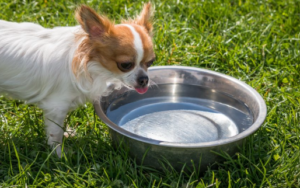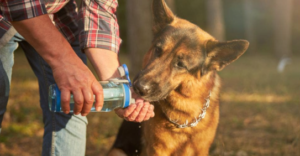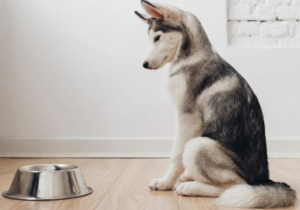Water is essential for every living being, including our beloved canine companions. If your dog do not drink water, it can lead to dehydration and potentially serious health issues. Understanding the reasons behind your dog’s reluctance to drink water and taking appropriate action is crucial for their well-being. In this article, we’ll explore possible causes, signs of dehydration, and effective solutions to encourage your dog to stay hydrated.
Why Is Water Important for Dogs?

Water plays a vital role in your dog’s overall health. It:
- Regulates Body Temperature: Helps prevent overheating, especially on hot days.
- Aids Digestion: Keeps their digestive system functioning smoothly.
- Flushes Toxins: Assists in eliminating waste through urination.
- Maintains Joint Health: Supports lubrication of joints for better mobility.
- Facilitates Nutrient Absorption: Ensures proper transportation of nutrients in the body.
An adequate water intake is essential to keep your dog’s bodily functions running efficiently. A lack of water can lead to dehydration, which poses significant health risks.
Signs of Dehydration in Dogs
If your dog isn’t drinking water, watch for these common signs of dehydration:
- Dry Nose and Gums: A dry, sticky mouth can indicate a lack of moisture.
- Loss of Skin Elasticity: Gently pinch the skin on your dog’s back. If it doesn’t snap back quickly, dehydration might be the cause.
- Sunken Eyes: Dehydration can cause your dog’s eyes to appear sunken.
- Lethargy: A lack of energy and reluctance to move can signal low hydration levels.
- Dark Urine: Concentrated, dark urine or reduced urination frequency is a warning sign.
If you observe these symptoms, act quickly to prevent further health complications.
Common Reasons Dog Do not Drink Water

Several factors may contribute to your dog’s refusal to drink water:
1. Health Issues
Conditions such as urinary tract infections (UTIs), kidney disease, or gastrointestinal problems can cause reduced water intake. Pain or discomfort while drinking may also discourage your dog.
2. Environmental Changes
Dogs are creatures of habit. A new water bowl, change in location, or unfamiliar environment can make them hesitant to drink.
3. Dirty Water or Bowl
Dogs are sensitive to odors and taste. A dirty water bowl or stale water can deter them.
4. Stress or Anxiety
Stressful situations, such as moving to a new home or the presence of unfamiliar people or pets, may cause your dog to avoid drinking.
5. Dietary Factors
If your dog eats wet food, they may naturally drink less water as wet food contains higher moisture levels compared to kibble.
What to Do If Your Dog Won’t Drink Water

Here are some practical tips to encourage your dog to drink water:
1. Rule Out Medical Issues
- Before making assumptions, consult your veterinarian. A thorough check-up can identify underlying medical conditions that might be affecting your dog’s water intake.
2. Clean and Refresh the Water Bowl
- Wash the bowl daily with soap and water.
- Refill it with clean, fresh water multiple times a day.
- Use stainless steel or ceramic bowls to avoid odors.
3. Change the Location
Try placing water bowls in multiple areas around your home. A quieter or more accessible location might encourage your dog to drink.
4. Make Water More Appealing
- Add a splash of low-sodium chicken or beef broth to their water.
- Drop in ice cubes or use a pet water fountain to intrigue them.
- Offer flavored water specifically designed for pets.
5. Adjust Their Diet
- Incorporate wet food into their meals to increase moisture intake.
- Offer water-rich fruits and vegetables, such as watermelon, cucumber, or celery, as occasional treats.
6. Use Positive Reinforcement
- Reward your dog when they drink water. Praise and treats can encourage consistent hydration behavior.
7. Monitor Their Activity
- After playtime or walks, gently encourage your dog to drink by placing the water bowl near them. They’re more likely to drink after physical exertion.
Preventing Dehydration in Dogs
To avoid dehydration, ensure that your dog:
- Always has access to clean water.
- Drinks more during hot weather or after exercise.
- Is monitored for any changes in behavior related to water intake.
When to See a Veterinarian
If your dog refuses to drink water for more than 24 hours or shows severe signs of dehydration, seek veterinary care immediately. Prolonged dehydration can lead to serious complications, such as kidney damage or heatstroke.
FAQs
Q1: How much water should my dog drink daily?
A general rule of thumb is that dogs need about one ounce of water per pound of body weight per day. For example, a 40-pound dog should drink approximately 40 ounces (5 cups) of water daily.
Q2: Can I give my dog electrolyte solutions?
Yes, but only use pet-safe electrolyte solutions or consult your vet before introducing them. Avoid giving human electrolyte drinks unless advised.
Q3: Can dehydration in dogs resolve on its own?
Mild dehydration can resolve with increased water intake. However, severe dehydration requires immediate veterinary attention.
Conclusion
Water is vital to your dog’s health, and their reluctance to drink can be concerning. By identifying the cause and implementing these practical solutions, you can ensure your dog stays hydrated and healthy. Always keep an eye on their behavior and consult a veterinarian if necessary.
If your dog’s refusal to drink persists, don’t delay in seeking professional advice. Your proactive care will go a long way in safeguarding your furry friend’s well-being.
